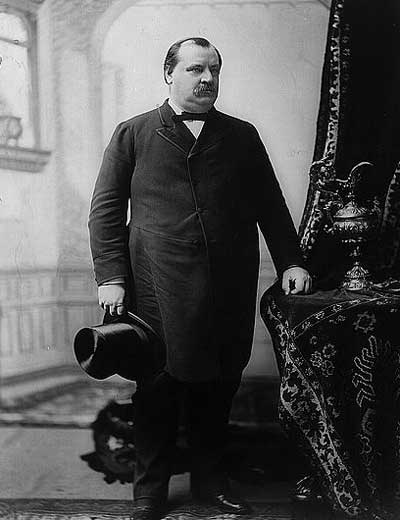Grover Cleveland: Defender of Hawaiian Independence

A report on NPR this morning noted that the United States had supported a coup against the Queen of Hawaii. It implied that this coup led directly led to the incorporation of Hawaii into the United States.
The full story of Hawaiian annexation is more complicated and more interesting. In early 1893, a cabal of American-born planters overthrew Queen Liliukalani. The American minister to Hawaii, who had aided the plotters, declared triumphantly, "The Hawaiian pear is now fully ripe, and this is the golden hour for the United States to pluck it." The outgoing administration of President Benjamin Harrison hurriedly drafted a treaty of annexation.
Although ultimate Senate passage seemed a foregone conclusion, the Democrats delayed the vote so that incoming President Grover Cleveland could get the glory of adding Hawaii to the U.S. map.
When Cleveland took office in March, however, he defied nearly everybody's expectations. He not only came out forcefully against the treaty of annexation but condemned the coup as illegal. He also called for restoration of the deposed Queen and reaffirmed what he saw as the American foreign policy tradition of non-interventionism.
Offered Hawaii on a silver platter, Cleveland stood up for principle and said"no." In 1898, he recalled "I regarded and still regard the proposed annexation of Hawaii as not only opposed to our national policy but as a perversion of our national mission. The mission of our nation is to build up and make a great country out of what we have, instead of annexing islands."
Cleveland held the line against annexation for the rest of his term. Meanwhile, the coup plotters, now shunned by the United States, had to content themselves by setting up a"Republic of Hawaii." Only in 1898 during the expansionist administration of Republican William McKinley was Hawaii incorporated into the United States.